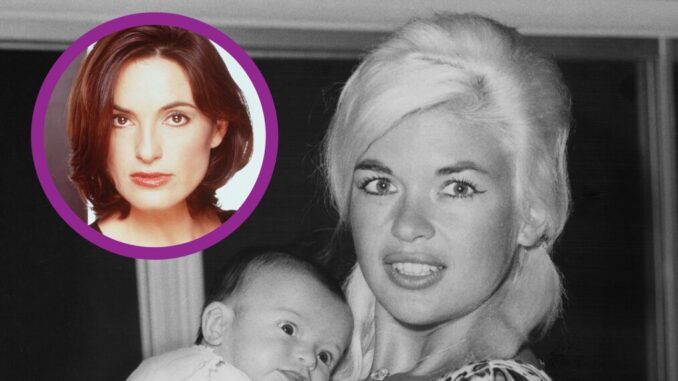
The Scars We Carry: Mariska Hargitay, Jayne Mansfield, and the Unseen Wounds of Trauma
Mariska Hargitay, the indomitable Olivia Benson of Law & Order: SVU, embodies strength and resilience on screen. She stands as a beacon for survivors, a fierce protector of the vulnerable. But behind that iconic persona lies a past etched in tragedy, a silent film played on repeat in the subconscious: the 1967 car crash that claimed the life of her mother, the glamorous and controversial actress Jayne Mansfield, and nearly took hers as well. Mariska, only three years old at the time, survived with a scar across her forehead, a physical reminder of the devastation. However, the unseen wounds, the psychological scars inflicted by such a profound loss at such a tender age, run far deeper.
The narrative woven around Jayne Mansfield often focuses on her Hollywood image: the platinum blonde bombshell, the Marilyn Monroe rival, the provocative figure who challenged societal norms. Her death, sudden and violent, solidified her status as a tragic icon, a cautionary tale of the perils of fame. But lost within this larger narrative is the impact on her children, particularly Mariska, who was forced to navigate the complexities of grief, loss, and identity in the shadow of a mythologized mother.
The forthcoming documentary promises to peel back the layers of this carefully constructed image, offering a glimpse into the lived experience of Mariska Hargitay, the child who survived. It’s not just a story of a famous actress’s untimely demise, but a potent exploration of the lasting effects of trauma, the insidious ways in which grief can shape a life, and the enduring power of resilience.
The scar on Mariska's forehead serves as a powerful metaphor for the invisible scars that many survivors carry. While physical wounds heal, the emotional and psychological fallout can linger for decades, manifesting in anxiety, depression, difficulty forming attachments, and a constant underlying sense of vulnerability. For Mariska, this trauma was compounded by the public nature of her loss. Her mother’s death was not a private tragedy, but a media spectacle, a relentless reminder of the event that irrevocably altered her life.
However, this documentary also promises a testament to the human spirit’s remarkable capacity for healing and growth. Mariska Hargitay has not allowed the tragedy to define her. Instead, she has channeled her pain into purpose. Her portrayal of Olivia Benson, a character dedicated to supporting and empowering survivors of sexual assault, is not just an acting role; it’s a deeply personal mission. She understands the complexities of trauma firsthand, and her nuanced performance resonates with authenticity and empathy.
Furthermore, her work with the Joyful Heart Foundation, an organization dedicated to ending sexual assault, domestic violence, and child abuse, further solidifies her commitment to healing and advocacy. Through this work, Mariska has transformed her personal tragedy into a platform for positive change, providing support and resources to those who have experienced similar traumas.
Ultimately, Mariska Hargitay’s story is one of survival, resilience, and the transformative power of empathy. The upcoming documentary promises to be a raw and honest exploration of grief, loss, and the enduring impact of trauma. It will undoubtedly shed light on the hidden struggles of survivors, while also offering a message of hope and healing. By confronting her past, Mariska not only reclaims her own narrative but also provides a powerful voice for countless others who carry their own unseen scars. The scars, both visible and invisible, are a testament to the battles fought, the wounds endured, and the unwavering spirit that allows us to rise from the ashes and forge our own path towards healing and wholeness. And in sharing her story, Mariska Hargitay offers us a profound lesson in the enduring strength of the human heart.
